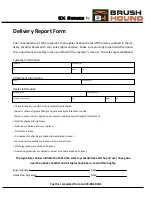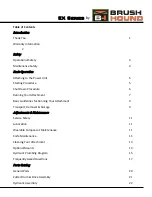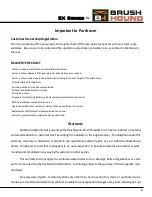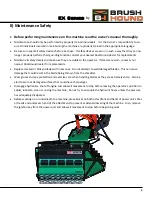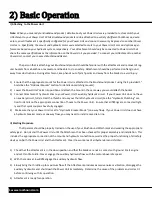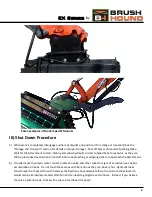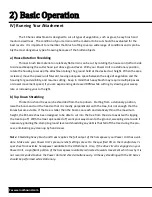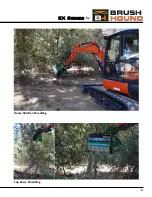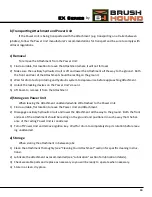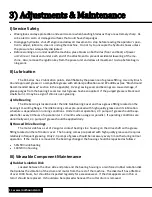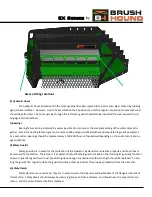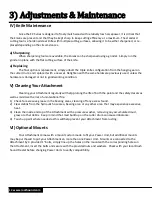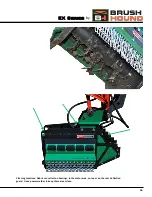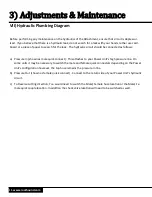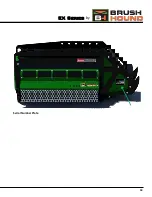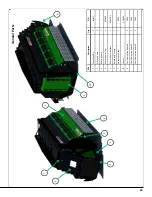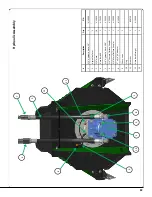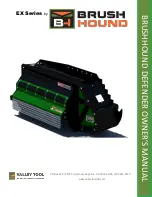
V) Basic Guidelines for Running Your Attachment
Your Attachment is most efficient when the knives are sharp and turning at full RPM. Your specific rec-
ommended shaft speed is listed on the unit’s Serial Number plate, but it should range from 1700-2000
RPM.
Before beginning your job, walk the work area and clear all the hidden hazards such as large rocks, utility
lines, fencing and hidden debris like broken glass, bottles and miscellaneous materials. Projected debris
can cause injuries to operators, pedestrians, livestock or damage property.
While inspecting the work area, be on the lookout for bees, fire ants, poison ivy or poison oak. Also be
aware of improper working conditions such as overly saturated grounds which can cause slippery condi-
tions. Taking note of all potential area hazards will increase your productivity as well as your safety.
Never allow bystanders to be near mowing or brush cutting or to climb on the machine.
Loading or “lugging down” the cutter excessively will significantly reduce its cutting capacity and result in
increased hydraulic oil temperature. Stay aware of the cutter drum speed and lift out of the cut until
maximum speed is regained before resuming.
When cutting large diameter material, lay the tree down and plane the tree from side to side. This will
proved a better, finer mulch and is quicker and easier than trying to grind a tree of +6” diameter from the
top down.
Do not use this attachment as a bucket to dig up roots and spread piles of dirt.
This type of damage will
not be covered by your warranty and repairs will be expensive.
The weldment’s design is strong
enough to last for decades if cared for properly. Watch the BrushHound video CD to observe the proper
cutting technique for your conditions.
Check your discharge path. Most mowers and brush cutters will have some combination of material dis-
charge system. Always make sure you know your discharge direction and discharge guards are properly
secured and in good working order. Never start the attachment if the safety guards are not securely fas-
tened to the attachment.
Abuse can be indicated by drum damage or premature knife failure. To prevent abuse, always reduce
cutting load before significant cutter drum speed is lost.
VI) Transport, Removal & Storage
a) Transporting on Power Unit
If the attachment is being transported on the Power Unit, disengage the auxiliary hydraulic circuit and
position the attachment at a reasonable driving height and position to maximize Power Unit’s balance. Wait
for the drum to stop rotating before transport.
2) Basic Operation
9
www.rockhound.com
Summary of Contents for BrushHound 30EX
Page 2: ......
Page 4: ......
Page 13: ...8 House Rotation Shredding EX Series by Top Down Shredding...
Page 23: ...18 EX Series by Serial Number Plate...
Page 24: ...EX Series Brush Shredder Parts Catalog 19 www rockhound com...



